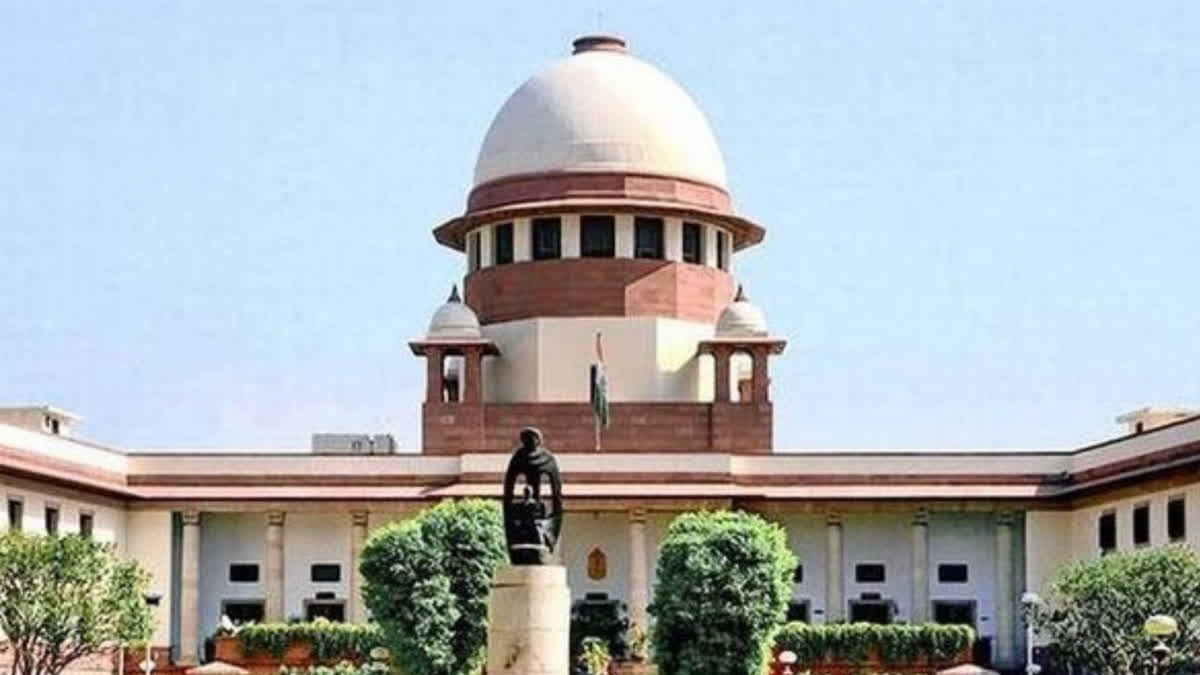New Delhi: The Supreme Court has dismissed an appeal by an accused, sentenced to life imprisonment for shooting a person while he was heavily drunk, saying that insanity, due to drunkenness or otherwise, can't be taken as a defence in a crime unless it is proved that there was incapacity to understand the nature of action.
A bench comprising of justices Abhay S Oka and Pankaj Mithal said: “It may be true that the deceased may have been killed accidentally by the appellant in the state of intoxication but there is no iota of evidence to establish that due to intoxication he was incapable of knowing the nature of his act or that the act which he was doing or likely to do was so dangerous so as to cause death of any person”.
The bench further added, “Thus, in the absence of such evidence, coupled with the fact that it is not the case of the appellant that he was administered intoxication without his knowledge or against his will, the provision of Section 86 IPC would not be applicable and he would not be entitled to reduction of sentence from 302 IPC to one falling under Part-II of Section 304 IPC”.
The apex court dismissed an appeal by Nanhe challenging the Allahabad High Court's order confirming conviction and sentence of life imprisonment awarded to him for shooting down a person.
The apex court did not accept Nanhe’s contention that at the time of incident on May 30, 2007, he was heavily intoxicated and as such was not in a position to even know what he was doing.
The bench noted that the accused was drunk and even in such a situation he was able to walk properly and had gone 15 to 20 steps away from the place of quarrel after it was settled to return and fire.
The apex court said this sufficiently proves that he was mentally alert and was not incapacitated from knowing what he is doing and what would be its consequences. It noted that once the killing was complete, the public had thrashed and beaten him mercilessly and, therefore, when he was examined, he could not speak. “The inability to speak in such a situation would not be sufficient indication that the level of intoxication was so high that he was unable to understand and take a conscious decision”, said the bench.
According to the prosecution, Mahendra and Nanhe were quarrelling with each other. After the intervention of others, Nanhe left the place. But after walking 15 to 20 steps from the spot, he turned around and fired a shot from a country-made pistol, which hit another person, Saddam Hussain, resulting in his death.
The apex court noted that Section 86 of the IPC absolved the accused of committing an offence by reason of intoxication and incapability of knowing the nature of his act.
The bench said, to apply the provision, twin conditions have to be satisfied, the first that the accused was administered a thing which intoxicated him without his knowledge or against his will and secondly, the intoxication has to be of the level which incapacitated him of knowing the nature of the act committed or likely to be committed by him.
The bench said, in these cases among other factors, "The evidence of drunkenness which renders the accused incapable of forming any opinion or intention ought to be considered with the surrounding facts and circumstances so as to come to the conclusion whether or not he had intention to do the said act."
The apex court, in a judgment delivered on Tuesday, said if a person has an intention to commit an offence or cause a death of any person but kills one whose death he never intended to cause, he would still be guilty of causing death.
“The appeal is devoid of merit and is accordingly dismissed with no order as to cost. However, the appellant is at liberty to apply for remission in accordance with remission policy of the State in vogue and in the event such power is invoked, the State is expected to consider it on its own merit most expeditiously”, said the bench.



